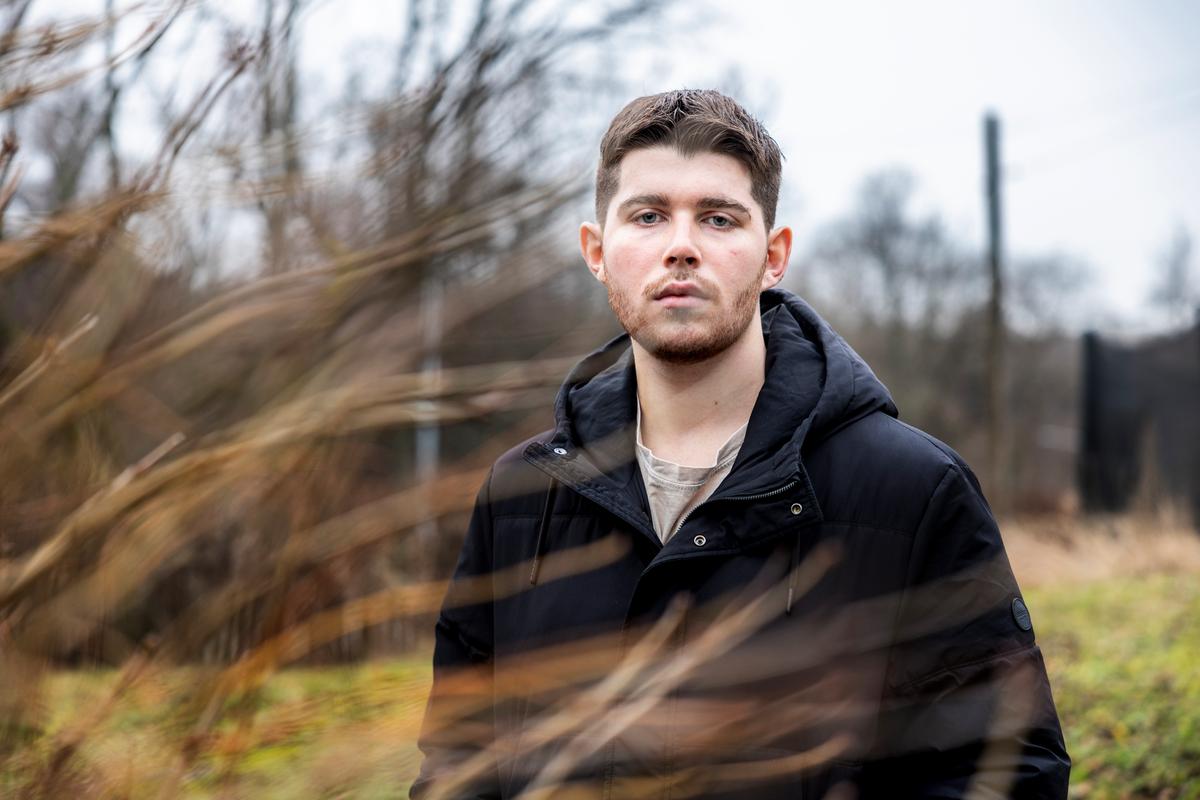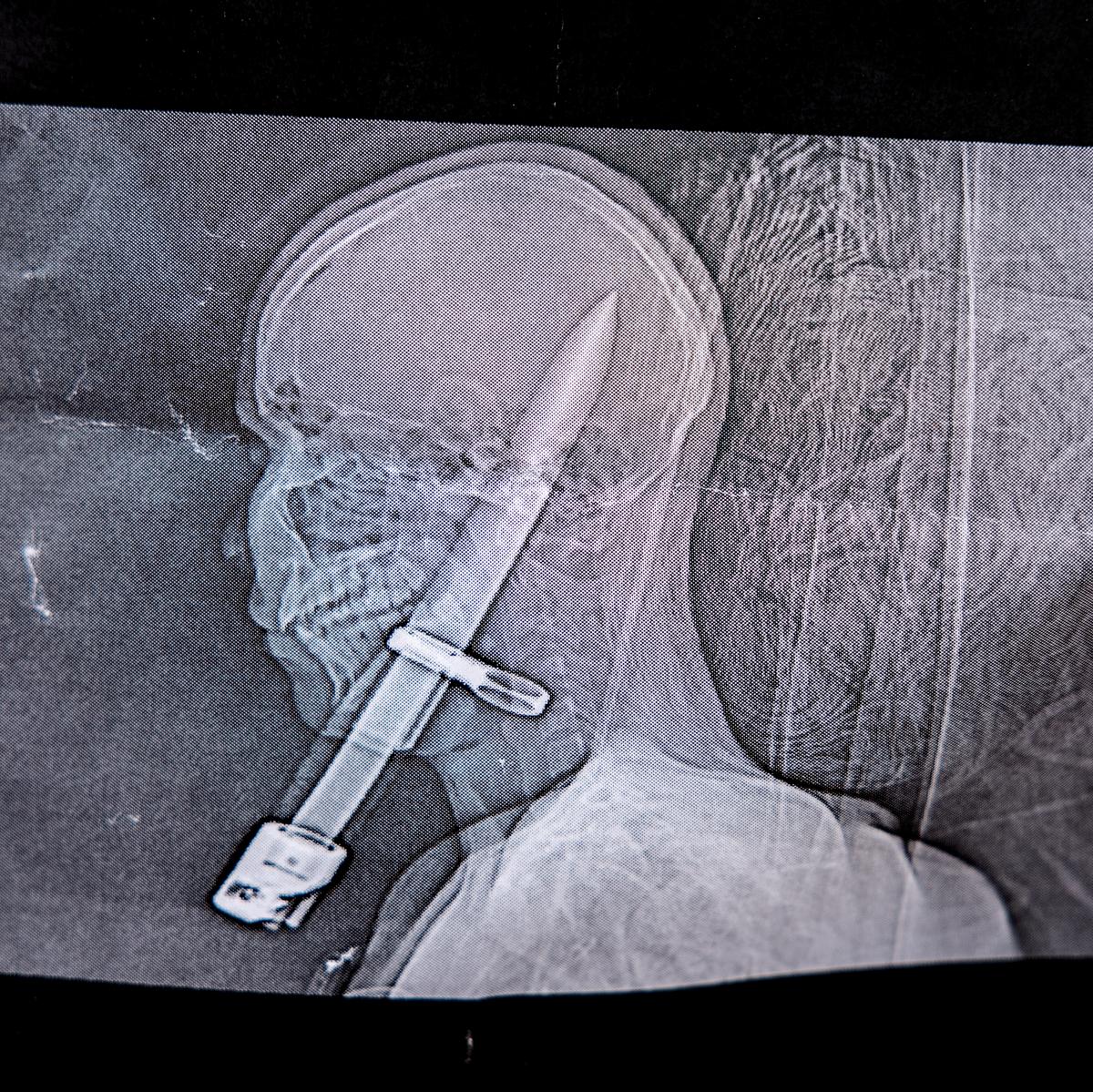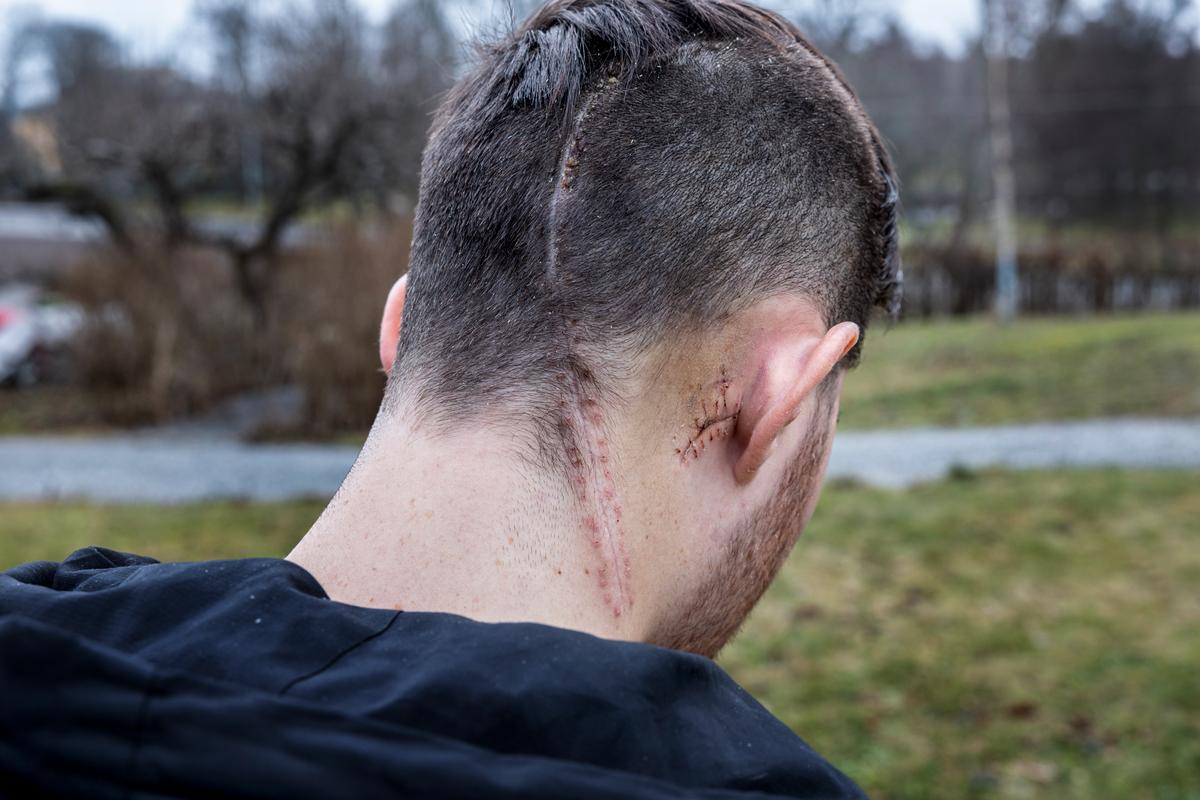Alexander, 19, was impaled by his own bayonet
Agnes Ericson
Updated 20.32 | Published 18.55

When the accident occurred, Alexander Löfgren from Stockholm had been on high guard for three days and had been conscripted for five months at the Stockholm Amphibious Regiment.
Photo: Andreas Bardell
During his shift as a high guard outside the Royal Palace, Alexander Löfgren, 19, slipped and was impaled in the head by his own bayonet.
The tip penetrated twelve centimeters.
Now he talks for the first time about the accident that nearly cost him his life.
“It was truly a one-in-a-million accident,” he says.
He remembers that it was really slippery on the morning of January 11 on the cobblestones outside the palace in central Stockholm .
At the changing of the guard at 10 a.m., Alexander Löfgren and other conscripts walked towards the entrance to the high guard wing.
But on the last step, Alexander lost his grip on his left foot and slipped and fell straight backwards.
Then he felt something was wrong behind his right ear.
– And then I felt that there was a bayonet stuck there. My first instinct was to kind of tug on it or feel it, but it was stuck really hard. Then I screamed.
When he was impaled, he felt no pain. “It must have been because of the adrenaline,” he says.
When he was impaled, he felt no pain. “It must have been because of the adrenaline,” he says.
Photo: Andreas Bardell

The tip penetrated twelve centimeters into the head.
Photo: Andreas Bardell
Waved to the soldiers from the ambulance
Then everything went quickly.
Soldiers and his commander called an ambulance and brought him into the castle where they put a dressing on him and removed the bayonet from the rifle.
– They were really good. And it's thanks to their quick action that I'm alive, he says.
No one really understood how serious the accident was.
– I don't think they knew how far it was. People thought it was just in the skin because I was conscious and could talk and joke and everything. I waved goodbye to everyone as I was put into the ambulance.
Operated for five hours
Alexander kept his spirits up during the trip to Karolinska University Hospital.
– I guess I mostly thought that this is kind of cool anyway, I've never been in an ambulance before. It really was like in a movie.
Once at the hospital, his injuries were assessed as life-threatening and he was put under anesthesia and underwent emergency surgery for five hours.

He has scars on his head after the surgery.
Photo: Andreas Bardell
Thirty hours later he opened his eyes.
My head felt heavy as a block of stone and the stitches hurt.
Then he found out that the tip had penetrated twelve centimeters into the skull and even scratched the brain.
– It was mostly when they told me how far in it was that I realized that I should be happy to be alive, he says.
How is he feeling today?
He remained in the hospital for a week and was allowed to come home on Monday last week.
– It was actually very nice. Being able to sleep in your own bed and feel quite free.
The recovery has been rapid, but he is still on sick leave and resting at home.
Alexander was lucky.
The bayonet reached the brain but did not hit anything vital.
He has suffered hearing loss and loss of sensation on his right side, but does not appear to have any permanent damage.
How are you today?
– A little more tired than usual maybe, but that could be due to medication and stuff. But otherwise I'm actually feeling fine. Which is damn lucky. It could have gone wrong.
As soon as the doctors have given the green light, he wants to return to military service as soon as possible.
According to doctors, it could take up to two years for him to fully recover.
Investigated as a workplace accident
The police are investigating the incident as a work environment violation and causing bodily harm.
After the accident, the Armed Forces chose to temporarily dismantle the bayonets until weather conditions improved.
Alexander Löfgren does not think the employer has done anything wrong.
– They saved my life, so I only have good things to say about them, he says.
The king heard from him.
Since the accident, many soldiers and friends have been in touch. So has King Carl Gustaf. Alexander received both flowers and a letter in which the king wished him a speedy recovery.
But he instead wants to pay tribute to the colleagues who helped him.
– I still think the focus should be on those comrades, he says.
Yesterday he took out the stitches on the back of his head.
– Yes, it's never fun to have a scar. But it's not something I go around thinking about. It's a war injury, he says and smiles.


